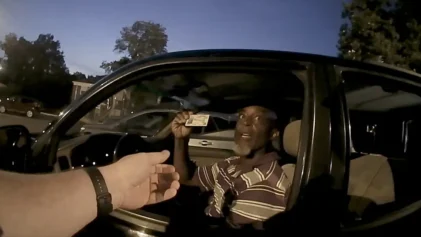Attacks on African migrant business owners in South Africa have left many migrants fearing for their lives even though much of the country’s wealth is controlled by white people, not Black immigrants.
Police confirmed to Times Live that 100 people have been arrested on charges ranging from public violence to malicious damage to property, and to theft.
The violence boiled over last Tuesday when taxi driver Jabu Baloyi was shot and killed by an accused Nigerian drug dealer in the capital city of Pretoria, according to multiple media reports.
The shooting came after taxi operators tried to forcefully remove drug addicts from the streets, the news site reported.
The situation sparked looting and destruction throughout Johannesburg, and more than 50 shops and several vehicles were destroyed, Bloomberg reported.
The conflict, however is deeper than just a protest gone wrong. For some, it’s the result of growing frustrations about an unequal distribution of wealth in South Africa.
The country attracts residents from poorer nations in search of a better life, and their increased presence in poor neighborhoods has sparked resentment from locals who view foreigners as competitors for jobs and housing, Bloomberg reported.
That resentment, however is misplaced, South African advocates have argued in media reports.
“The Daily Show” host Trevor Noah, who’s from South Africa, cited statistics in 2017 that of the 2.3 million immigrants living in the country, 1.6 million are Africans, and they claim less than 0.00001 percent of the country’s wealth.
“Yours is complete misplaced anger, prejudice and xenophobia built up out of inferiority complex created by decades of apartheid and oppression,” he said. “I don’t see fellow African as a competitor but a fellow compatriot who is struggling to feed his family and have some comfort in this short life-time.”
About 10 percent of South Africa’s population owns 90 percent of the country’s wealth, according to the South African Human Rights Commission.
The commission also reported in 2018 that 60 percent of Black South Africans live in poverty, while just 1 percent of white South Africans are poor.
Kadiye Mohamed, a Somalian store owner, has lived in South Africa for nine years.
“My fear is dying from being beaten,” Mohamed told Bloomberg.
“That is no way to die, especially at the hands of your fellow Africans,” the store owner added. “I ask myself what we have done to make them so angry.”
The violence has been brewing for more than a decade, and in 2008, xenophobic violence led to 60 deaths and more than 50,000 people forced to leave their homes, Bloomberg reported.
Nigerian tailor Chibundu Kalu, who’s lived in South Africa for 13 years, survived the turmoil, according to the news agency.
“I have nine stitches on my head because they hit me over the head with a metal rod and I became unconscious. I woke up in hospital,” Kalu told Bloomberg. “I hope the police can protect us and our businesses better.”
President Cyril Ramaphosa condemned the violence “in the strongest terms” on Twitter Tuesday.
He said he was convening a meeting of his security ministers to “find ways of stopping” wanton violence.
“Whatever concerns or grievances we may have, we need to handle them in a democratic way,” Ramaphosa said on Twitter. “There can be no justification for any South African to attack people from other countries.”


